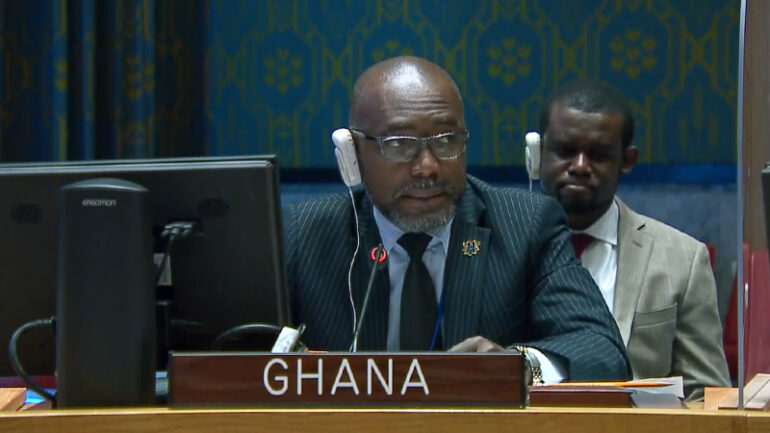The situation in the Middle East: Briefing and Consultations on Peace Process

Mr. President,
I join previous speakers in thanking Special Coordinator Tor Wennesland, Commissioner-General Philippe Lazzarini and Mr. Daniel Levy for their comprehensive briefings, which give the Council an assessment of the prevailing situation on the ground.
The briefings we have heard today are not too different from those that the Council has previously heard. It would have been our desire to hear a much more promising prospect of improvements on the ground for this decades old conflict, which is not only a clash over territories, but also one of rights and aspirations for peaceful co-existence and development. Regrettably, from what we have heard, the parties are far from each other and the situation on the ground continues to impede the early realisation of the two-State solution.
Mr. President,
We welcome, consistent with the purposes and principles of the Charter of the United Nations, the reports of the renewal of friendly relations between Israel and Turkey, reflected in the decision to return Ambassadors and Consuls-General to each other’s capital. We hope that such efforts would help to strengthen regional stability and support the renewal of the dialogue required by the parties towards the achievement of the two-State solution.
While conscious of the security concerns of Israel, we are, nonetheless, concerned about the worsening human security, dire humanitarian situation and incidence of human right abuses, violations, detentions without charge or trial in parts of the Occupied Palestinian Territory, especially in the West Bank, Gaza, and East Jerusalem. We are especially concerned by the killing and injury of several innocent and non-armed Palestinians, including children.
We also share the international community’s concern over the unilateral actions by Israeli settlers aimed at forcing Palestinian communities and families from their land across the occupied West Bank and in East Jerusalem. The raiding and shutting down of the offices of six prominent Palestinian Civil Society Organizations that are known to have contributed to human rights protection in the Occupied Palestinian Territories after their designation last year as terrorist groups is equally worrying. We do not condone terrorism in any form or manifestation but believe that such designations, if it is to be shared by international community, would require full justification.
Mr. President,
To achieve peace requires deliberate actions in building trust. In this regard, we urge the parties to de-escalate existing tensions and generate the needed political momentum for direct negotiations. We urge Israel, to respect the inalienable rights of all those in the Occupied Territory and abide by its legal obligations and responsibilities under the Fourth Geneva Convention relative to the Protection of Civilian Persons in Time of War.
We reiterate that all parties in the conflict comply fully with international humanitarian law, the UN Charter and the many relevant United Nations resolutions, including resolution 2334 (2016). As an occupying power, the Israeli government has a responsibility to protect the civilian population, guarantee complete, unhindered and secure access for humanitarian assistance to the vulnerable (elderly, women and children) and facilitate the free movement of humanitarian workers throughout the Occupied Territories.
Mr. President,
In concluding, we reaffirm our position that violence cannot be a tool for the resolution of the Israeli-Palestinian conflict and that the path for lasting peace and stability in the Middle East runs through the internationally negotiated two-state solution with Israel and Palestine living side by side on the basis of the pre-1967 borders. The realization of goals for the Middle East Process however, require the Council and the wider international community to sustain the engagement of the parties whose good-faith efforts are required to resolve this decades-long conflict.
I thank you.
